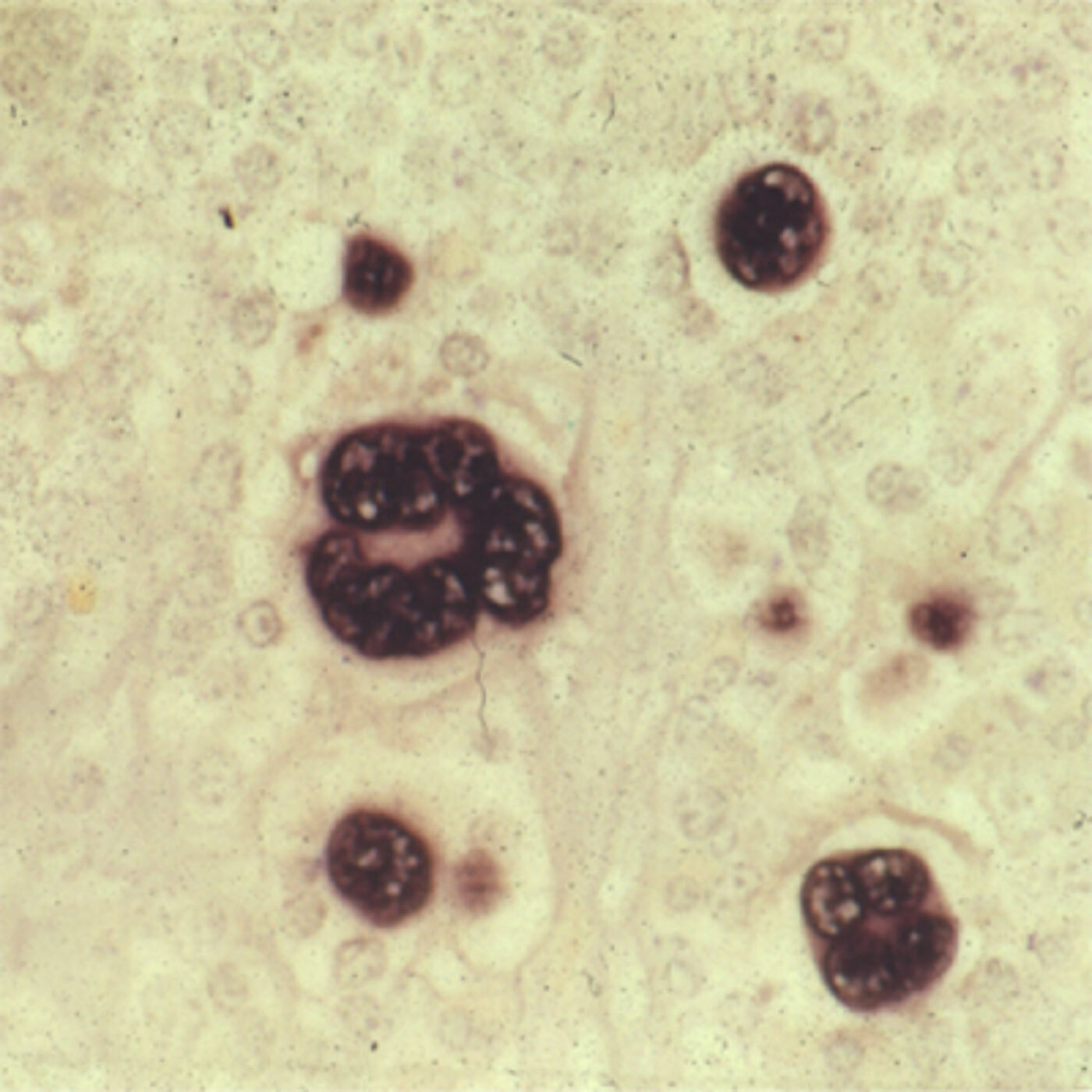Epstein-Barr virus
Epstein-Barr virus (EBV) is a human herpesvirus with a worldwide distribution. Over 90% of adults are persistently infected by EBV and infection usually occurs in early childhood. In developed countries, primary infection is often delayed until adolescence or early adulthood and can result in infectious mononucleosis (glandular fever). This is a benign, self-limiting disease that is frequently associated with prolonged fatigue. EBV is also associated with malignant diseases including a range of lymphomas and nasopharyngeal and gastric carcinoma. It is estimated that the virus causes 1.8% of cancer deaths.
Research in the CVR is focused on understanding why some individuals develop EBV-associated Hodgkin lymphoma, the commonest type of EBV-associated lymphoma. Ultimately this will inform strategies to prevent and treat this malignant disease.
Contact: Ruth Jarrett
[Top]

Visualisation of EBV in the tumour cells of Hodgkin lymphoma

